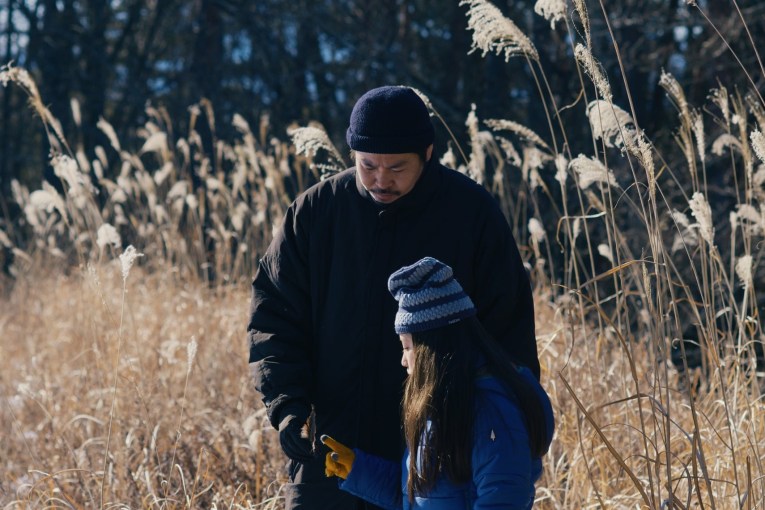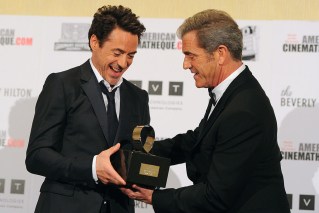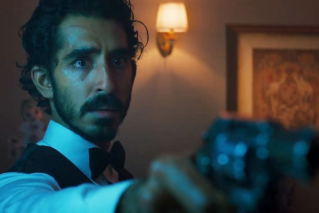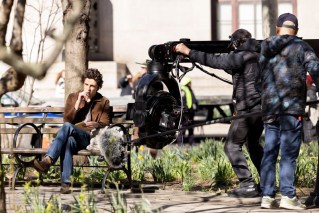Darren Weir charges cast shadow over new Michelle Payne film Ride Like A Girl
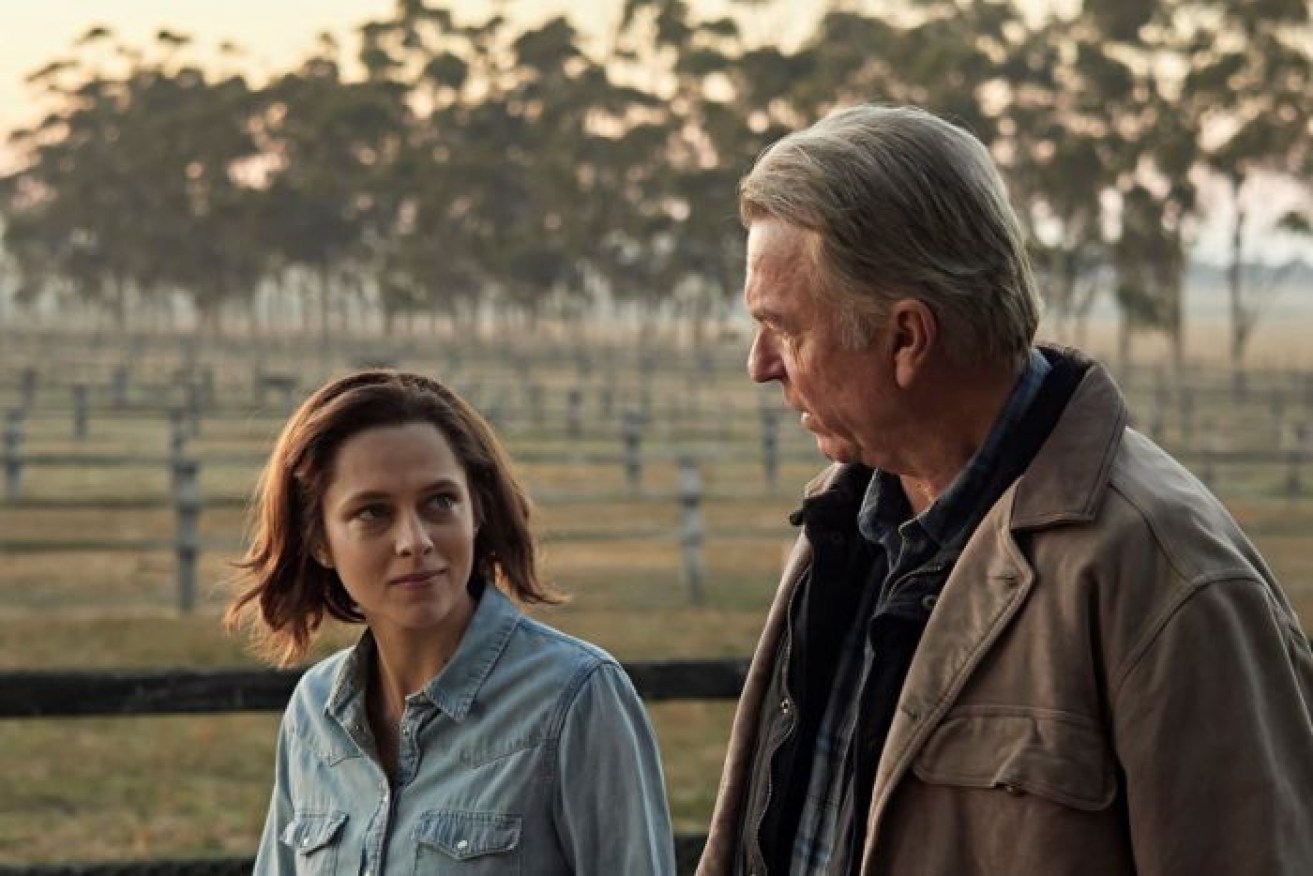
Teresa Palmer (Michelle Payne) and Sam Neill (Paddy Payne) in a scene from Ride Like a Girl. Photo: ABC News
An upcoming film celebrating the life and achievements of Michelle Payne, the first female jockey to win the Melbourne Cup, was expected to be one of the feel-good Aussie films of the year.
Ride Like A Girl is the debut feature directed by Oscar-nominated Melbourne actor Rachel Griffiths, and was scheduled be released to coincide with this year’s Spring Racing Carnival.
But the police investigation into horse trainer Darren Weir, and the charges issued against him by Racing Victoria on Friday, has cast a shadow over the film.
Weir was the trainer who hired Payne for her historic Melbourne Cup victory on Prince Of Penzance in 2015.

Weir and Payne celebrate after the historic Melbourne Cup victory in 2015. Photo: AAP
Weir is played in Ride Like A Girl by Sullivan Stapleton opposite Teresa Palmer’s Payne.
With Stapleton as the third-billed actor beneath Palmer and Sam Neill’s as Payne’s father Paddy, it’s fair to assume Weir has to play a significant part in the film’s narrative.
How the publicity about the charges against Weir and the ongoing police investigation will impact the film is yet to be seen.
Fix it in post
Swinburne University screen studies lecturer Kaz Horsley said this week’s developments could impact Ride Like A Girl in two key ways.
“One of them is … how things will impact the finished product, and the other aspect is how it will be received at the box office,” Ms Horsley said.
She said real world events affecting films was not uncommon.
September 11 led to some movies, most notably Sam Raimi’s Spider-Man, using computer effects to erase the World Trade Centre’s twin towers from the skyline or plot.
Deaths of actors, such as Brandon Lee during the making of The Crow and Oliver Reed during filming of Gladiator, have also forced changes to productions.
The #MeToo movement also led to Kevin Spacey being removed from Ridley Scott’s All The Money In The World late in post-production, with Spacey’s role reshot with actor Christopher Plummer in his place.
Ms Horsley said another recent example was the Australian film Storm Boy, which stars Geoffrey Rush, who has faced accusations of inappropriate behaviour from female co-stars.
“I’m not sure how the controversy around Geoffrey Rush is going to actually impact [Storm Boy] … but I can’t imagine that it won’t,” Ms Horsley said.
“Obviously it was too late after the film was made to change that character because the film was already made when all [the accusations] came out.
“That’s an example of how the personal lives of people can affect the box office, but in terms of affecting the film itself, that’s a different thing.”
‘This is unique’
The difference between those examples and Ride Like A Girl is that the latter’s troubles stem from a character based on a real-life person.
“In terms of these kinds of controversies and someone being a pivotal character … this is unique,” Ms Horsley said.
“It’s interesting, it’s a real conundrum. I don’t quite know what’s going to happen.”
Here are some of the post-production options at the filmmakers’ disposal if they feel the allegations against Weir could damage the film:
Re-cut or re-shoot
“I would think [the filmmakers are discussing] how they can recut the film,” Ms Horsley said.
“[They could] maybe shoot some extra scenes, and make [the character] less pivotal.
“But this would have a domino effect where your narrative is disrupted somehow, and you may have changed the narrative to the extent where the film doesn’t make sense anymore.
“You may be thinking about using some other scenes that were shot that this character doesn’t appear in, but again that’s changing the narrative.”
Move the release date
While no release date is set, putting more time between this week’s events and the film hitting cinemas could be helpful.
“I think that [pushing the release date might] be useful,” Ms Horsley said.
“That old adage ‘there’s no such thing as bad publicity’ is no longer relevant.
“I don’t think that bad publicity is going to make people want to go and see this film – if the film was about the controversy, then maybe, but it’s not, and this is the problem.”
Add a disclaimer at the start or end of the film
“I’m not convinced that they can just run it as it is,” Ms Horsley said.
“[But they may just] release it and be damned, but have a disclaimer at the end [saying] these events were depicted in this period of time before [the investigation began].
“It’s a cheap way out – ‘this happened and the filmmakers were unaware of these events at the time’ – just to let them off the hook a bit.
“But here’s the problem – are we the audience going to be on the side of that character? Is it a sympathetic character in the film? Is it someone we’re going to relate to? Is it someone that we want to be on their side?
“If it’s going to be the ‘feel-good story of the year’ you don’t want it to end on a bum note. It’s really hard to know.
“I’d imagine there are people in talks around big tables at the moment having a discussion and all arguing about the best way forward for this film.”
The ABC attempted to contact two of Ride Like A Girl‘s producers but they did not return calls.
Screen Australia and Film Victoria also declined to comment.
